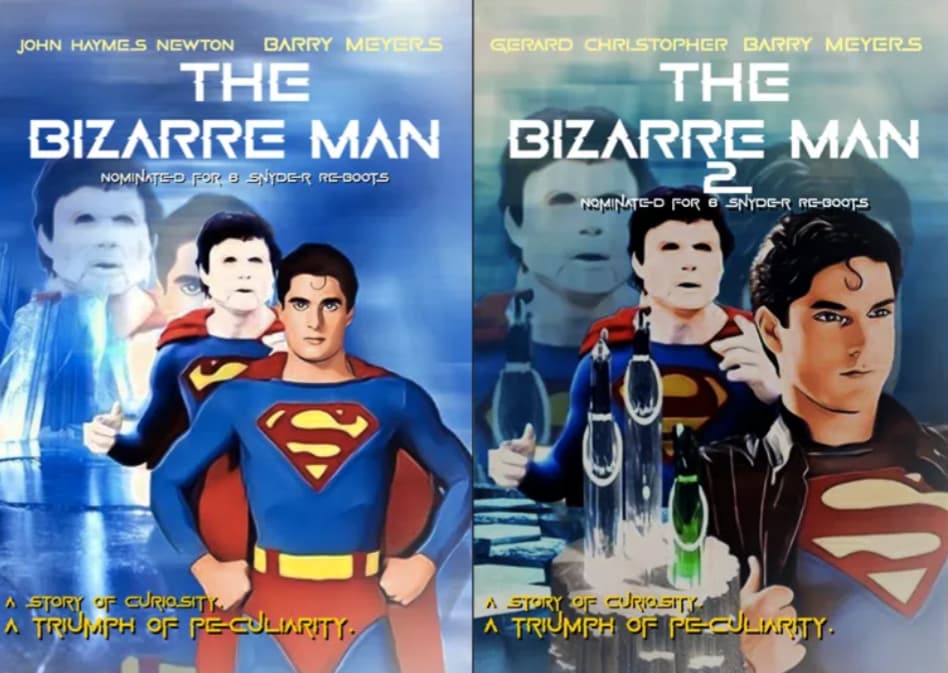Long post with Cliff’s at the bottom of your scrolling.
As someone who’s been working in the TV and movie industry relatively steadily in a key creative position for almost the last 30 years, I find this topic interesting enough to come out of posting retirement. I’m seeing a lot of stuff that just isn’t right about the arc of movies and what caused the ‘problems’ you’re seeing today that Clovis is blaming on the MCU (one universe I’ve managed to avoid related to work).
I entered the industry right as a major sea change was happening related to how work was done and how value changed for salaries and employees vs. the 1980s. My main mentor (I had two) was highly working in the peak of the industry for talent in the 1980s and it’s never even remotely approached what he told me went on back then today.
I was there when the most watershed moments in the movie industry happened related to budgets spiraling and saw it up close and personal. There is exactly one person to ‘blame’ for the state of the industry today, and he was very recently mentioned in the thread. That person is James Cameron. The first impact was the movie Titanic. I worked at the facility that transferred the film to many different versions (even did audio fixes on those transfers), and he was in the facility working right down the hall from me for months.
If you were inside the industry at the time, you knew Titanic was an extremely troubled, delayed, and grotesquely over budget production. Most people thought there would be no chance the movie could ever re-coup its costs, because to that time only 7 movies had made more than $300 million domestically and none were based on something where we already knew the outcome of the real life story. Only 4 movies had made $400 million domestically to that time. The rumored budget of the movie was $200 million dollars at a time when a big ‘A’ title was usually in the $80 million range, and ‘A’ titles were generally in the $60-80 million range. Jurassic Park was budgeted at $63 million a few years earlier to give an example.
Conventional wisdom is that a movie needs to make double its budget back to break even. Before Titanic even got out the gate, it would need to make $400 million, something only Star Wars, The Lion King, E.T., and Jurassic Park had done domestically to that point, combined budgets of $131.5 million, with the top budget being Jurassic Park. Those were all relatively economical pictures in their era, with Star Wars being a famously low budget movie. I’d guess an early to possibly mid-80s ‘A’ title was probably budgeted in the $15-20 million range (Raiders was budgeted at $20 million and Empire Strikes Back was $30.5 million), with the next lower end ‘A’ title range probably being in the $10-15 million range. Times have changed a lot.
The second highest budgeted movie of 1997 was Tomorrow Never Dies at $110 million, which was an extraordinary budget in its own right. The most recent previous allegory to the troubles of Titanic was the roughly $175 million budgeted Waterworld in 1995. Batman Forever had a $100 million budget as a comparison. Movie budgets over $100 million were rare back then, because so few movies made over $200 million domestically and had to make the rest overseas. Most studios (other than MGM for Bond) wanted those domestic grosses and put the most emphasis on them, something again that’s very different today where international is always massively leading the way and often drives the stories you’re seeing on the big screen here at least from a blockbuster standpoint.
The industry was so freaked about Cameron and Titanic that he had to pay for some of the production overages and two movie studios split the cost and distribution because they were so terrified it would fail. Everyone was looking for a way out of the seeming disaster. Just seeing what this movie was was, to me, a bad message. If it bombed, Cameron’s career would be over. If it was a success, it would distort the rest of the industry into trying to chase its extremely unlikely success. Needless to say, it had the most impressive box office run in history, which still stands today regardless of whatever else has taken its place. Before it even came out I boycotted it because I felt it sent the wrong message to a struggling industry. I still have not seen anything other than what I worked on for it to this day. The movie industry spiraled budgets out of control as I expected, monopolization of various parts of the industry happened, and many many many people lost their jobs. The movie studios were on the verge of insolvency, until they got luckily saved by…DVD. And that really just made things worse from a greed standpoint later on with the terrible introduction of Blu-ray to the industry well before the industry or consumers were ready for it.
It was after that movie that budgets began to spiral north of $100 million. By 2002, just 5 years later, almost all of the biggest ‘A’ titles were nearing the $150 million mark even though only 11 movies had made $300 million domestically to that point. In general, nearly every movie released at that budget would be depending on international grosses solely to turn a profit.
With the success of franchises like Lord of the Rings, Harry Potter, and Spiderman, everyone was on the hunt for the next franchise. What’s the movie we can make 6 or 7 of that tears up the box office and makes our jobs easy? The answer was there was no answer, as many franchise attempts came and flopped. Most probably don’t remember the Fast franchise was almost completely dead when Vin Diesel resurrected it for the fourth one. I did work for all three of the first ones (plus the fourth), and let’s just say Tokyo Drift wasn’t gonna keep any franchise alive. It was a burnt property until Diesel returned and it’s still going today 22 years after the first one.
Inside of that era, almost no studio wanted to touch a comic book universe with a 10-foot pole. After the terrible demise of Batman in the 1990s, no one had interest. The only movies really being made were the X-Men movies starting in 2000 with relatively modest budgets until they felt they could get enough audience out of them. When the budgets for the X-Men movies went up, the audiences went away.
In 2005, I did a lot of work for two movies, Batman Begins and Charlie and the Chocolate Factory. Something I’d noticed was whenever WB would release a Harry Potter movie, they would always toss a big budget movie in with it that they were thinking or hoping would be a write off, as in a bomb. This was the year of Goblet of Fire. I did lots of work for all three of those movies. All three were budgeted at $150 million and they were fresh off the Catwoman disaster. And all three were released in the same year. WB knew Goblet would be a hit enough to absorb the others, but I always wondered which one of Charlie or Batman they thought would flop, if not both. Based on seeing the films, I think they thought Charlie was a disaster, and I don’t think they were confident audiences would identify with the much darker Batman of the Nolan films. They were very wrong on both counts. Nolan helped studios realize you could successfully do comic book movies for the screen and that caused several studios to take shots most not really successfully.
Then, looming once again in the background was the $237 million budgeted Avatar from our friend James Cameron, a long term project that the industry was waiting to come out. The good news for Cameron is several other movies had broken the $200 million budget barrier before Avatar’s release. But, to me, Avatar started the gold rush all over again. It can easily be argued that Iron Man was what changed the industry into saying it was possible the MCU could be entirely successful (with Disney eventually going all the miles to make sure they owned all the IP they hadn’t previously). That was ultimately proven 4 years later with The Avengers. That was still on the back of Avatar’s ruling of the box office once again.
The studios decided if you can make a big budgeted movie successful worldwide, who cares about the domestic grosses? Because if they did, every executive of a major budget Hollywood movie wouldn’t be able to sleep at night. To this day, there are still only 44(!) movies that have made more than $400 million domestically, despite there being 85 movies made with budgets north of $200 million. To give an even better heat check, only 98 movies have ever made $300 million domestically.
What this all means is that, no whatever you think is going on with the MCU isn’t cannibalizing the rest of film, or what you call mid-budget. I don’t know what you consider to be mid-budget, but that category is mostly empty for me. To me, a mid-budget movie is one budgeted in the $60 million range, the best fairly recent example being Arrival, which got an enormous amount on screen for its paltry budget. I was hoping it would usher in a new era of filmmaking, where more of those budget level movies would be made but it didn’t happen. The main ‘low’ budget tier of movies these days is the $30-40 million budget range (looking at the Best Picture nominees, it might be closer to $20 million now). Most of the ‘best’ quality movies are made at that budget level. I remember seeing La La Land in the theater, an extraordinarily unbelievable tale of the struggle of working in Hollywood that was still very moving to me and not really liking it due to what I perceived to be a big budget. When I went home and saw the budget was $35 million, I was like, okay now I like the movie for all they did on that budget.
What many of the people ruing the day of the missed mid-budget movies are missing is there is now a huge micro budget ecosystem, movies that are made by promising filmmakers for $5 million and under that they often write and direct. The issues of the 2000s basically pushed every mid-level filmmaker into TV. That’s why TV became so cinematic. Mid-budget movie directors needed to eat, something they weren’t going to get to do in the movie industry, and they got the chance to put their stamps on a show that could tell a long story. The micro budget film industry didn’t exist in the 90s, and really didn’t even exist through most of the 2000s outside of random horror movies. Lionsgate is a huge supporter of this type of filmmaking (with them distributing some surprisingly good micro budget films made under the Saban banner) and I’m sure the streamers are too.
Movies, much like music, have undergone a huge revolution that makes access to getting your material out there easy or at least much easier. The tools are widely, cheaply, and easily available and there are lots of tutorials on YouTube to get you close enough. That doesn’t change that making anything is truly a team process and if you try to do it all yourself, you’re just limiting what the final product can be. That’s the double-edged sword of easy access. The lack of quality is often due to the way the industry set itself up in the mid-90s. Knowledge transfer basically stopped by the early 2000s, as everyone was expected to work independently without assistants that would normally help create a pipeline of knowledge. Now, everyone’s doing their own thing, and unless they’re old or have worked across many genres, in many roles, quality is gonna suffer. It doesn’t help that most consumers won’t even notice.
Like Risky Flush says, and also stuff I’ve heard from other filmmakers, (almost) no one ever sets out to make a bad movie. If they thought it would be a bad movie, they wouldn’t work on it. Everyone has hopes, and the individual skills that create a team is what makes it all work. Most of the comic book/Star Wars type movies are committeed to death so that something terrible can’t get out there. That can be the thing that causes it too. But like all art, the beauty is in the eye of the beholder. Once the artist lets the work out, how it’s perceived is how it is. It’s up to the artist to care about that perception and to correct it if the artist doesn’t get how it’s perceived that way. The artist’s vision will still always be the one that matters no matter what happens. If the artist sees reflection in his/her/their criticism or perception, it can help make the next thing better. Or if the artist disagrees, the artist should just keep on keeping on. It’s the artist’s work after all.
And one last thing, no movie studio cares about the quality of the movies, they care about the quality of the money it brings in. If big budget Oscar type movies ruled the box office, there would be hundreds of them. It would be the same for any other budget level. All studios care about is making money. If the movie that makes the money wins an Oscar, great, if a movie that makes the money is perceived as a sack of s***, well, how much did it make?
I can talk a lot more on this, but I’d have to be led by questions I’m able to answer.
Cliffs: Blame James Cameron/blame studios searching for franchises as easy money/dead mid-budget ecosystem creates more ecosystems for future talent to survive/all things are both bad and good depending on the perspective and the MCU is just the successful franchise Disney found, along with Star Wars, after many awful years


 I just can’t do gore.
I just can’t do gore.

